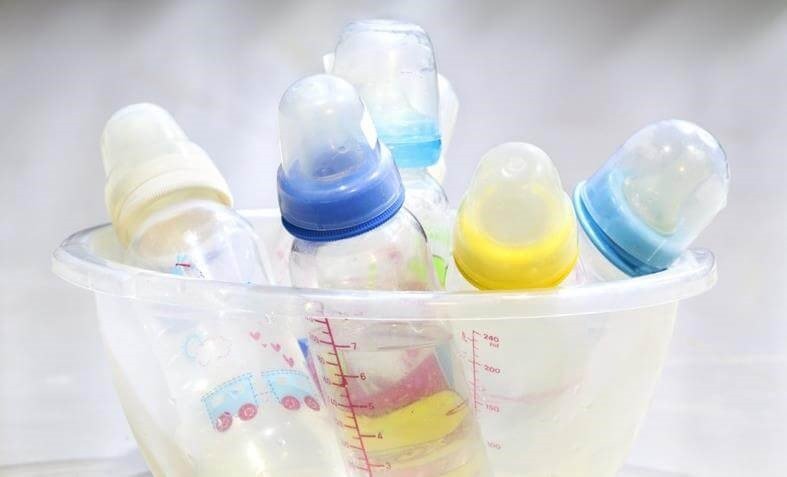Should baby’s bottles, pacifiers, and other utensils be sterilized? The answer is yes. We will discover why it is so important for the health of the child.

Many moms, despite opting for breastfeeding, also use bottles to feed their babies when they cannot; event that occurs especially when they begin to work after the corresponding weeks of breastfeeding.
In this sense, it is normal that many doubts arise, especially related to the conservation of breast milk and other issues directly related to it.
As we well know, breastfeeding is not only the best option to feed the little one, but also the healthiest and most economical since the breast always has food to give and you don’t have to spend money on cheap formula milk.
However, when artificial breastfeeding is included in the baby’s life or when it is necessary to give a bottle on rare occasions, it is necessary to follow hygiene rules, especially in the smallest babies, as they grow, such strict hygiene should be taken less into account.
Sterilization of baby bottles and pacifiers
When the little one is born, it is exposed to many germs and bacteria that can cause infections and underlying problems, so it is essential to choose and maintain proper hygiene with the utensils, in this case the bottles that are going to be used.
Not only bottles must go through the sterilization process, we know that babies put any object in their mouths, so it is ideal that you suck them, or any toy or utensil is sterilized in order to prevent certain bacteria or viruses from influencing the baby.
There are several ways to sterilize the baby’s bottles or utensils, however, when you choose one of them, it is always advisable to previously wash the bottles with hot water and soap very thoroughly with an interior brush and turn the nipples to start. Any remaining milk that has stuck.
As you may have noticed, it is indeed very important not only to sterilize the bottles, but also the nipples used with them to feed the baby. It is even convenient to do the same with the child’s jackets, and do it at least from time to time.
Regarding the bottle, you must separate each of its parts so that each utensil is sterilized individually: bottle itself, nipple, lid…
As for the method you want to use to sterilize the bottles will depend on the speed and comfort for you or your partner. Below we will detail the most effective sterilization methods:
- Cold sterilization: this method consists of introducing the bottles and everything that we want to clean in a container with cold water and a disinfectant solution, it is a simple method but the time is longer, between half an hour and an hour.
- Heat sterilization: thanks to this method we can sterilize the bottles at high temperatures, it can be done with the microwave, using devices adapted to electromagnetic waves or with devices manufactured exclusively for sterilization where it will only take an amount of water and a few minutes to sterilize the bottles thanks to the steam it generates. In other cases and the most rudimentary is to put the utensils to be sterilized in a pot of water and let it boil over the fire for 10 or 20 minutes.
On the other hand, it is essential to always wash your hands well with hot water for at least 20 seconds, each time we go to take the already sterilized bottles and nipples.
Many pediatricians advise in fact not to sterilize the utensils or bottles for an exaggerated or long period of time, since in this way we allow the baby to come into contact with bacteria that will later help them to develop their own defenses.
The sterilization of bottles and other objects must be done from birth to at least four months, from there washing with hot water and soap will be enough since the baby has a more developed immune system and will be less prone to contracting any infection.
Why should we sterilize baby’s bottles?
It is advisable to sterilize the baby’s bottles and other utensils until the third month of life, at least once a day. And it is that as we indicated in How to sterilize the bottle, pacifier and nipple the first time, the key is to maintain proper hygiene, being very important to sterilize these utensils the first time they are going to be used, and then not being so necessary to do so. So often.
Why is it so important? For something as fundamental as it is basic: when the baby is still small, their immune defenses are not fully developed, so not sterilizing their utensils or washing them properly can lead to intestinal infections, as well as other related conditions.































